386 results found for 'for'. Prev |1|2|3|4|5|6|7|8|9|10|11|12|13|14|15|16 | Next | View 100 per page
Low relevance matches: 424 other results may be of interest to you. Show low relevance matches
Forces and Moving - The way objects move depends on a variety of factors including their size and shape ACSSU031 Year 2 Chemical Sciences
Materials - Different materials can be combined, including by mixing, for a particular purpose ACSSU033 Year 2 Physical Sciences
Forces and Moving - A push or a pull affects how an object moves or changes shape ACSSU076 Year 4 Physical Sciences
Forces and Moving - Forces can be exerted by one object on another through direct contact or from a distance ACSSU080 Year 5 Physical Sciences
Light and Sound - Light from a source forms shadows and can be absorbed, reflected and refracted ACSSU097 Year 6 Physical Sciences
Electrical Circuits - Electrical energy can be transferred and transformed in electrical circuits and can be generated from a range of sources ACSSU117 Year 7 Physical Sciences
Forces and Machines - Change to an object’s motion is caused by unbalanced forces, including Earth’s gravitational attraction, acting on the object ACSSU153 Year 8 Earth and Space Sciences
Rocks and Minerals - Sedimentary, igneous and metamorphic rocks contain minerals and are formed by processes that occur within Earth over a variety of timescales ACSSU155 Year 8 Physical Sciences
Energy Forms - Energy appears in different forms, including movement (kinetic energy), heat and potential energy, and energy transformations and transfers cause change within systems ACSSU178 Year 9 Chemical Sciences
Chemical Reactions - Chemical reactions involve rearranging atoms to form new substances; during a chemical reaction mass is not created or destroyed ACSSU225 Year 8 Chemical Sciences
Chemical Reactions - Chemical change involves substances reacting to form new substances ACSSU190 Year 10 Physical Sciences
Energy Conservation - Energy conservation in a system can be explained by describing energy transfers and transformations ACSSU229 Year 10 Physical Sciences
Forces and Motion - The motion of objects can be described and predicted using the laws of physics ACSBL029 Year 11 Biodiversity and the interconnectedness of life
Ecosystem dynamics - Models of ecosystem interactions (for example, food webs, successional models) can be used to predict the impact of change and are based on interpretation of and extrapolation from sample data (for example, data derived from ecosystem surveying techniques ACSBL115 Year 12 Maintaining the internal environment
Homeostasis - Animals, whether osmo-regulators or osmo-conformers, and plants, have various mechanisms to maintain water balance that involve structural features, and behavioural, physiological and homeostatic responses ACSCH018 Year 11 Chemical fundamentals
Properties and structure of atoms - Atoms can be modelled as a nucleus surrounded by electrons in distinct energy levels, held together by electrostatic forces of attraction between the nucleus and electrons; atoms can be represented using electron shell diagrams (all electron shells or val ACSCH025 Year 11 Chemical fundamentals
Properties and structure of materials - Materials are either pure substances with distinct measurable properties (for example, melting and boiling point, reactivity, strength, density) or mixtures with properties dependent on the identity and relative amounts of the substances that make up the ACSCH030 Year 11 Chemical fundamentals
Properties and structure of materials - Ions are atoms or groups of atoms that are electrically charged due to an imbalance in the number of electrons and protons; ions are represented by formulae which include the number of constituent atoms and the charge of the ion (for example, O2–, SO42–) ACSCH032 Year 11 Chemical fundamentals
Properties and structure of materials - The characteristic properties of metals (for example, malleability, thermal conductivity, electrical conductivity) are explained by modelling metallic bonding as a regular arrangement of positive ions (cations) made stable by electrostatic forces of attra ACSCH036 Year 11 Chemical fundamentals
Chemical reactions - All chemical reactions involve the creation of new substances and associated energy transformations, commonly observable as changes in the temperature of the surroundings and/or the emission of light ACSCH037 Year 11 Chemical fundamentals
Chemical reactions - Endothermic and exothermic reactions can be explained in terms of the Law of Conservation of Energy and the breaking and reforming of bonds; heat energy released or absorbed can be represented in thermochemical equations ACSCH039 Year 11 Chemical fundamentals
Chemical reactions - A mole is a precisely defined quantity of matter equal to Avogadro’s number of particles; the mole concept and the Law of Conservation of Mass can be used to calculate the mass of reactants and products in a chemical reaction ACSCH056 Year 11 Molecular interactions and reactions
Intermolecular forces and gases - The shapes of molecules can be explained and predicted using three dimensional representations of electrons as charge clouds and using valence shell electron pair repulsion (VSEPR) theory ACSCH059 Year 11 Molecular interactions and reactions
Intermolecular forces and gases - Data from chromatography techniques (for example, thin layer, gas and highperformance liquid chromatography) can be used to determine the composition and purity of substances; the separation of the components is caused by the variation of strength of the ACSCH060 Year 11 Molecular interactions and reactions
Intermolecular forces and gases - The behaviour of gases, including the qualitative relationships between pressure, temperature and volume, can be explained using kinetic theory ACSCH065 Year 11 Molecular interactions and reactions
Aqueous solutions and acidity - The solubility of substances in water, including ionic and molecular substances, can be explained by the intermolecular forces between species in the substances and water molecules, and is affected by changes in temperature ACSCH069 Year 11 Molecular interactions and reactions
Rates of chemical reactions - The rate of chemical reactions can be quantified by measuring the rate of formation of products or the depletion of reactants ACSCH101 Year 12 Equilibrium acids and redox reactions
Chemical equilibrium systems - Acidbase indicators are weak acids or bases where the acidic form is of a different colour to the basic form ACSCH131 Year 12 Structure synthesis and design
Chemical synthesis and design - Chemical synthesis involves the selection of particular reagents to form a product with specific properties (for example, pharmaceuticals, fuels, cosmetics, cleaning products) ACSPH039 Year 11 Thermal nuclear and electrical physics
Electrical circuits - Energy is conserved in the energy transfers and transformations that occur in an electrical circuit ACSPH042 Year 11 Thermal nuclear and electrical physics
Electrical circuits - Power is the rate at which energy is transformed by a circuit component; power enables quantitative analysis of energy transformations in the circuit ACSPH043 Year 11 Thermal nuclear and electrical physics
Electrical circuits - Resistance for ohmic and nonohmic components is defined as the ratio of potential difference across the component to the current in the component ACSPH060 Year 11 Linear Motion and Waves
Linear motion and force - Uniformly accelerated motion is described in terms of relationships between measurable scalar and vector quantities, including displacement, speed, velocity and acceleration ACSPH061 Year 11 Linear Motion and Waves
Linear motion and force - Representations, including graphs and vectors, and/or equations of motion, can be used qualitatively and quantitatively to describe and predict linear motion ACSPH062 Year 11 Linear Motion and Waves
Linear motion and force - Vertical motion is analysed by assuming the acceleration due to gravity is constant near Earth’s surface ACSPH063 Year 11 Linear Motion and Waves
Linear motion and force - Newton’s Three Laws of Motion describe the relationship between the force or forces acting on an object, modelled as a point mass, and the motion of the object due to the application of the force or forces ACSPH064 Year 11 Linear Motion and Waves
Linear motion and force - Momentum is a property of moving objects; it is conserved in a closed system and may be transferred from one object to another when a force acts over a time interval ACSPH065 Year 11 Linear Motion and Waves
Linear motion and force - Energy is conserved in isolated systems and is transferred from one object to another when a force is applied over a distance; this causes work to be done and changes to kinetic and/or potential energy of objects ACSPH066 Year 11 Linear Motion and Waves
Linear motion and force - Collisions may be elastic and inelastic; kinetic energy is conserved in elastic collisions ACSPH072 Year 11 Linear Motion and Waves
Waves - The superposition of waves in a medium may lead to the formation of standing waves and interference phenomena, including standing waves in pipes and on stretched strings ACSPH102 Year 12 Gravity and electromagnetism
Electromagnetism - Electrostatically charged objects exert a force upon one another; the magnitude of this force can be calculated using Coulomb’s Law ACSPH110 Year 12 Gravity and electromagnetism
Electromagnetism - A changing magnetic flux induces a potential difference; this process of electromagnetic induction is used in stepup and stepdown transformers, DC and AC generators, and AC induction motors ACSBL053 Year 11 Biodiversity and the interconnectedness of life
Ecosystem dynamics - Cellular respiration is a biochemical process that occurs in different locations in the cytosol and mitochondria and metabolises organic compounds, aerobically or anaerobically, to release useable energy in the form of ATP; the overall process can be repr ACSPH108 Year 12 Gravity and electromagnetism
Electromagnetism - Magnets, magnetic materials, moving charges and currentcarrying wires experience a force in a magnetic field; this force is utilised in DC electric motors ACSPH021 Year 11 Thermal nuclear and electrical physics
Heating processes - Change of state involves internal energy changes to form or break bonds between atoms or molecules; latent heat is the energy required to be added to or removed from a system to change the state of the system ACSPH100 Year 12 Gravity and electromagnetism
Gravity and motion - When an object experiences a net force of constant magnitude perpendicular to its velocity, it will undergo uniform circular motion, including circular motion on a horizontal plane and around a banked track ACSCH031 Year 11 Chemical fundamentals
Properties and structure of materials - The properties of ionic compounds (for example, high melting point, brittleness, ability to conduct electricity when liquid or in solution) are explained by modelling ionic bonding as ions arranged in a crystalline lattice structure with forces of attract ACSCH137 Year 12 Structure synthesis and design
Chemical synthesis and design - Fuels (for example, biodiesel, ethanol, hydrogen) can be synthesised from organic or inorganic sources using a range of chemical reactions including addition, oxidation and esterification ACSPH075 Year 11 Linear Motion and Waves
Waves - A ray model of light may be used to describe reflection, refraction and image formation from lenses and mirrors ACSPH077 Year 11 Linear Motion and Waves
Waves - The speed of light is finite and many orders of magnitude greater than the speed of mechanical waves (for example, sound and water waves); its intensity decreases in an inverse square relationship with distance from a point source ACSPH098 Year 12 Gravity and electromagnetism
Gravity and motion - The vector nature of the gravitational force can be used to analyse motion on inclined planes by considering the components of the gravitational force (that is, weight) parallel and perpendicular to the plane ACSPH103 Year 12 Gravity and electromagnetism
Electromagnetism - A positively charged body placed in an electric field will experience a force in the direction of the field; the strength of the electric field is defined as the force per unit charge ACSPH104 Year 12 Gravity and electromagnetism
Electromagnetism - Point charges and charged objects produce an electric field in the space that surrounds them; field theory attributes the electrostatic force on a point charge or charged body to the presence of an electric field ACSPH105 Year 12 Gravity and electromagnetism
Electromagnetism - When a charged body moves or is moved from one point to another in an electric field and its potential energy changes, work is done on or by the field
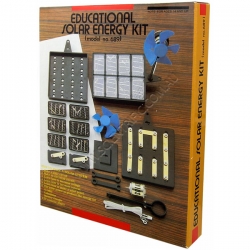
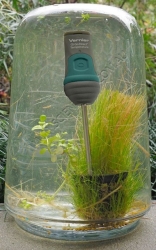



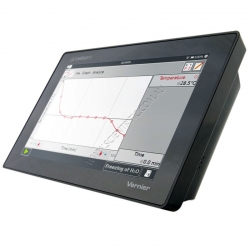
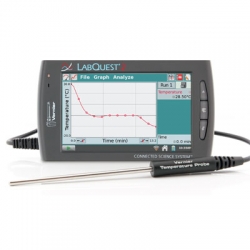
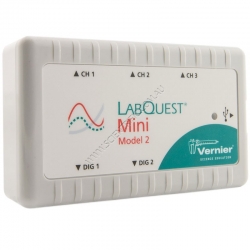

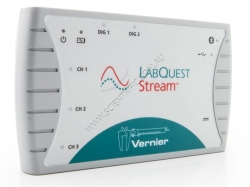
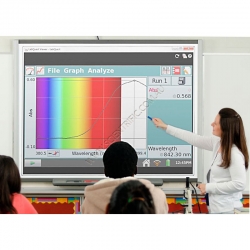

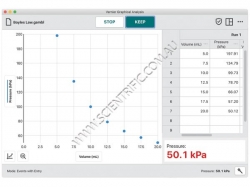

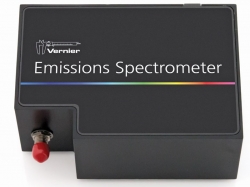








386 results found for 'for'. Prev |1|2|3|4|5|6|7|8|9|10|11|12|13|14|15|16 | Next | View 100 per page
Low relevance matches: 424 other results may be of interest to you. Show low relevance matches
Curriculum resources related to 'for'
ACSSU005 Foundation Physical SciencesForces and Moving - The way objects move depends on a variety of factors including their size and shape ACSSU031 Year 2 Chemical Sciences
Materials - Different materials can be combined, including by mixing, for a particular purpose ACSSU033 Year 2 Physical Sciences
Forces and Moving - A push or a pull affects how an object moves or changes shape ACSSU076 Year 4 Physical Sciences
Forces and Moving - Forces can be exerted by one object on another through direct contact or from a distance ACSSU080 Year 5 Physical Sciences
Light and Sound - Light from a source forms shadows and can be absorbed, reflected and refracted ACSSU097 Year 6 Physical Sciences
Electrical Circuits - Electrical energy can be transferred and transformed in electrical circuits and can be generated from a range of sources ACSSU117 Year 7 Physical Sciences
Forces and Machines - Change to an object’s motion is caused by unbalanced forces, including Earth’s gravitational attraction, acting on the object ACSSU153 Year 8 Earth and Space Sciences
Rocks and Minerals - Sedimentary, igneous and metamorphic rocks contain minerals and are formed by processes that occur within Earth over a variety of timescales ACSSU155 Year 8 Physical Sciences
Energy Forms - Energy appears in different forms, including movement (kinetic energy), heat and potential energy, and energy transformations and transfers cause change within systems ACSSU178 Year 9 Chemical Sciences
Chemical Reactions - Chemical reactions involve rearranging atoms to form new substances; during a chemical reaction mass is not created or destroyed ACSSU225 Year 8 Chemical Sciences
Chemical Reactions - Chemical change involves substances reacting to form new substances ACSSU190 Year 10 Physical Sciences
Energy Conservation - Energy conservation in a system can be explained by describing energy transfers and transformations ACSSU229 Year 10 Physical Sciences
Forces and Motion - The motion of objects can be described and predicted using the laws of physics ACSBL029 Year 11 Biodiversity and the interconnectedness of life
Ecosystem dynamics - Models of ecosystem interactions (for example, food webs, successional models) can be used to predict the impact of change and are based on interpretation of and extrapolation from sample data (for example, data derived from ecosystem surveying techniques ACSBL115 Year 12 Maintaining the internal environment
Homeostasis - Animals, whether osmo-regulators or osmo-conformers, and plants, have various mechanisms to maintain water balance that involve structural features, and behavioural, physiological and homeostatic responses ACSCH018 Year 11 Chemical fundamentals
Properties and structure of atoms - Atoms can be modelled as a nucleus surrounded by electrons in distinct energy levels, held together by electrostatic forces of attraction between the nucleus and electrons; atoms can be represented using electron shell diagrams (all electron shells or val ACSCH025 Year 11 Chemical fundamentals
Properties and structure of materials - Materials are either pure substances with distinct measurable properties (for example, melting and boiling point, reactivity, strength, density) or mixtures with properties dependent on the identity and relative amounts of the substances that make up the ACSCH030 Year 11 Chemical fundamentals
Properties and structure of materials - Ions are atoms or groups of atoms that are electrically charged due to an imbalance in the number of electrons and protons; ions are represented by formulae which include the number of constituent atoms and the charge of the ion (for example, O2–, SO42–) ACSCH032 Year 11 Chemical fundamentals
Properties and structure of materials - The characteristic properties of metals (for example, malleability, thermal conductivity, electrical conductivity) are explained by modelling metallic bonding as a regular arrangement of positive ions (cations) made stable by electrostatic forces of attra ACSCH036 Year 11 Chemical fundamentals
Chemical reactions - All chemical reactions involve the creation of new substances and associated energy transformations, commonly observable as changes in the temperature of the surroundings and/or the emission of light ACSCH037 Year 11 Chemical fundamentals
Chemical reactions - Endothermic and exothermic reactions can be explained in terms of the Law of Conservation of Energy and the breaking and reforming of bonds; heat energy released or absorbed can be represented in thermochemical equations ACSCH039 Year 11 Chemical fundamentals
Chemical reactions - A mole is a precisely defined quantity of matter equal to Avogadro’s number of particles; the mole concept and the Law of Conservation of Mass can be used to calculate the mass of reactants and products in a chemical reaction ACSCH056 Year 11 Molecular interactions and reactions
Intermolecular forces and gases - The shapes of molecules can be explained and predicted using three dimensional representations of electrons as charge clouds and using valence shell electron pair repulsion (VSEPR) theory ACSCH059 Year 11 Molecular interactions and reactions
Intermolecular forces and gases - Data from chromatography techniques (for example, thin layer, gas and highperformance liquid chromatography) can be used to determine the composition and purity of substances; the separation of the components is caused by the variation of strength of the ACSCH060 Year 11 Molecular interactions and reactions
Intermolecular forces and gases - The behaviour of gases, including the qualitative relationships between pressure, temperature and volume, can be explained using kinetic theory ACSCH065 Year 11 Molecular interactions and reactions
Aqueous solutions and acidity - The solubility of substances in water, including ionic and molecular substances, can be explained by the intermolecular forces between species in the substances and water molecules, and is affected by changes in temperature ACSCH069 Year 11 Molecular interactions and reactions
Rates of chemical reactions - The rate of chemical reactions can be quantified by measuring the rate of formation of products or the depletion of reactants ACSCH101 Year 12 Equilibrium acids and redox reactions
Chemical equilibrium systems - Acidbase indicators are weak acids or bases where the acidic form is of a different colour to the basic form ACSCH131 Year 12 Structure synthesis and design
Chemical synthesis and design - Chemical synthesis involves the selection of particular reagents to form a product with specific properties (for example, pharmaceuticals, fuels, cosmetics, cleaning products) ACSPH039 Year 11 Thermal nuclear and electrical physics
Electrical circuits - Energy is conserved in the energy transfers and transformations that occur in an electrical circuit ACSPH042 Year 11 Thermal nuclear and electrical physics
Electrical circuits - Power is the rate at which energy is transformed by a circuit component; power enables quantitative analysis of energy transformations in the circuit ACSPH043 Year 11 Thermal nuclear and electrical physics
Electrical circuits - Resistance for ohmic and nonohmic components is defined as the ratio of potential difference across the component to the current in the component ACSPH060 Year 11 Linear Motion and Waves
Linear motion and force - Uniformly accelerated motion is described in terms of relationships between measurable scalar and vector quantities, including displacement, speed, velocity and acceleration ACSPH061 Year 11 Linear Motion and Waves
Linear motion and force - Representations, including graphs and vectors, and/or equations of motion, can be used qualitatively and quantitatively to describe and predict linear motion ACSPH062 Year 11 Linear Motion and Waves
Linear motion and force - Vertical motion is analysed by assuming the acceleration due to gravity is constant near Earth’s surface ACSPH063 Year 11 Linear Motion and Waves
Linear motion and force - Newton’s Three Laws of Motion describe the relationship between the force or forces acting on an object, modelled as a point mass, and the motion of the object due to the application of the force or forces ACSPH064 Year 11 Linear Motion and Waves
Linear motion and force - Momentum is a property of moving objects; it is conserved in a closed system and may be transferred from one object to another when a force acts over a time interval ACSPH065 Year 11 Linear Motion and Waves
Linear motion and force - Energy is conserved in isolated systems and is transferred from one object to another when a force is applied over a distance; this causes work to be done and changes to kinetic and/or potential energy of objects ACSPH066 Year 11 Linear Motion and Waves
Linear motion and force - Collisions may be elastic and inelastic; kinetic energy is conserved in elastic collisions ACSPH072 Year 11 Linear Motion and Waves
Waves - The superposition of waves in a medium may lead to the formation of standing waves and interference phenomena, including standing waves in pipes and on stretched strings ACSPH102 Year 12 Gravity and electromagnetism
Electromagnetism - Electrostatically charged objects exert a force upon one another; the magnitude of this force can be calculated using Coulomb’s Law ACSPH110 Year 12 Gravity and electromagnetism
Electromagnetism - A changing magnetic flux induces a potential difference; this process of electromagnetic induction is used in stepup and stepdown transformers, DC and AC generators, and AC induction motors ACSBL053 Year 11 Biodiversity and the interconnectedness of life
Ecosystem dynamics - Cellular respiration is a biochemical process that occurs in different locations in the cytosol and mitochondria and metabolises organic compounds, aerobically or anaerobically, to release useable energy in the form of ATP; the overall process can be repr ACSPH108 Year 12 Gravity and electromagnetism
Electromagnetism - Magnets, magnetic materials, moving charges and currentcarrying wires experience a force in a magnetic field; this force is utilised in DC electric motors ACSPH021 Year 11 Thermal nuclear and electrical physics
Heating processes - Change of state involves internal energy changes to form or break bonds between atoms or molecules; latent heat is the energy required to be added to or removed from a system to change the state of the system ACSPH100 Year 12 Gravity and electromagnetism
Gravity and motion - When an object experiences a net force of constant magnitude perpendicular to its velocity, it will undergo uniform circular motion, including circular motion on a horizontal plane and around a banked track ACSCH031 Year 11 Chemical fundamentals
Properties and structure of materials - The properties of ionic compounds (for example, high melting point, brittleness, ability to conduct electricity when liquid or in solution) are explained by modelling ionic bonding as ions arranged in a crystalline lattice structure with forces of attract ACSCH137 Year 12 Structure synthesis and design
Chemical synthesis and design - Fuels (for example, biodiesel, ethanol, hydrogen) can be synthesised from organic or inorganic sources using a range of chemical reactions including addition, oxidation and esterification ACSPH075 Year 11 Linear Motion and Waves
Waves - A ray model of light may be used to describe reflection, refraction and image formation from lenses and mirrors ACSPH077 Year 11 Linear Motion and Waves
Waves - The speed of light is finite and many orders of magnitude greater than the speed of mechanical waves (for example, sound and water waves); its intensity decreases in an inverse square relationship with distance from a point source ACSPH098 Year 12 Gravity and electromagnetism
Gravity and motion - The vector nature of the gravitational force can be used to analyse motion on inclined planes by considering the components of the gravitational force (that is, weight) parallel and perpendicular to the plane ACSPH103 Year 12 Gravity and electromagnetism
Electromagnetism - A positively charged body placed in an electric field will experience a force in the direction of the field; the strength of the electric field is defined as the force per unit charge ACSPH104 Year 12 Gravity and electromagnetism
Electromagnetism - Point charges and charged objects produce an electric field in the space that surrounds them; field theory attributes the electrostatic force on a point charge or charged body to the presence of an electric field ACSPH105 Year 12 Gravity and electromagnetism
Electromagnetism - When a charged body moves or is moved from one point to another in an electric field and its potential energy changes, work is done on or by the field
Products related to 'for'
Molymod V-Link Grey for Tight Small Ring
MOLYMOD V-LINK GREY
A pack of 25 grey V-links used for tight small ring structures.
A quality, genuine Molymod® product fully compatible with all other genuine Molymod® products.
Order code: ML-20-25

Educational Solar Energy Kit
Educational Solar Energy Kit.
The best educational and most economical solar energy kit that we've ever stocked.
Eight separate solar cells are mounted in a sturdy plastic frame, each cell can be connected to adjoining cells using sturdy metal links to increase either ...
Order code: SC52400


| Purchase QTY: (Each) | 1+ |
|---|---|
| Base price | $22.00 |
| Scientrific's price | $20.00 |
| Educational special | $15.50 |
| CLICK FOR QTY PRICING | |
| Prices exclude GST and freight | |

Vernier Go Direct Temperature Probe
VERNIER GO DIRECT TEMPERATURE PROBE
Vernier's water resistant Go Direct Temperature Probe is a rugged, general purpose temperature sensor that students can use to monitor temperature. It connects wirelessly via Bluetooth® or it can be wired via USB to your device.
...
Order code: GDX-TMP



Vernier Go Direct SpectroVis Plus Spectrophotometer - Spectrometer
VERNIER GO DIRECT SPECTROVIS PLUS SPECTROPHOTOMETER.
Vernier's Go Direct SpectroVis Plus Spectrophotometer quickly measures a full wavelength spectrum. It directly connects wirelessly via Bluetooth® or wired via USB to your platform.
Introduce your students to spectros...
Order code: GDX-SVISPL



LED Clear Body turns Green with 200mm Cables Pack of 5
A 'water clear' bodied LED that turns green when voltage is applied.
The benefit of the clear body is that when measuring the photon wavelength using a spectrometer or by a diffraction method then the wavelength is not filtered by a coloured case and so a pure wavelength can ...
Order code: SC33007C



LED Clear Body turns Blue with 200mm Cables Pack of 5
A 'water clear' bodied LED that turns blue when voltage is applied.
The benefit of the clear body is that when measuring the photon wavelength using a spectrometer or by a diffraction method then the wavelength is not filtered by a coloured case and so a pure wavelength can be...
Order code: SC33008C



Vernier LabQuest 3 Data Logger and Interface
VERNIER LABQUEST 3
The new Vernier LabQuest 3 is a powerful, advanced, easy-to-navigate and versatile datalogging solution for STEM students. It is a standalone data-collection platform that allows students to collect, analyze, graph and interact with data efficiently. St...
Order code: LQ3

Vernier LabQuest 2 Data Logger and Interface
No longer available replaced by LabQuest 3
Vernier's popular LabQuest 2 is now discontinued as it has been superseded by the LABQ3 Vernier LabQuest 3 a powerful, advanced, easy-to-navigate and versatile datalogging solution for STEM students. The Vernier LabQues... Order code: LABQ2
Vernier's popular LabQuest 2 is now discontinued as it has been superseded by the LABQ3 Vernier LabQuest 3 a powerful, advanced, easy-to-navigate and versatile datalogging solution for STEM students. The Vernier LabQues... Order code: LABQ2


Vernier LabQuest Mini Data Logger Interface
VERNER LABQUEST MINI (MODEL 2)
Vernier LabQuest Mini (Model 2) brings the power of our award-winning LabQuest technology to teachers who don’t need the versatility of a standalone device. The perfect solution for educators collecting data with a Windows or Macintosh compu...
Order code: LQ-MINI



Tyvek® 500 Xpert Coverall - 2 Extra Large (PPE)
DuPont™ Tyvek® 500 Xpert/DuPont™ Tyvek® 500 Xpert hooded coverall available in white, in sizes M to XL Robust yet lightweight (
Order code: SC4946
| Purchase QTY: (Each) | 1+ |
|---|---|
| Scientrific's price | $14.90 |
| CLICK FOR QTY PRICING | |
| Prices exclude GST and freight | |

Vernier LabQuest Stream Wireless Data Logger
This product has been discontinued and is no longer available.
VERNIER LABQUEST STREAM Vernier's wireless and USB sensor interface LabQuest Stream gives students the freedom and flexibility to simultaneously collect data from multiple Vernier sensors using a mobile device, a Chromebook™ or a computer. Just like the name suggests, st... Order code: LQ-STREAM
VERNIER LABQUEST STREAM Vernier's wireless and USB sensor interface LabQuest Stream gives students the freedom and flexibility to simultaneously collect data from multiple Vernier sensors using a mobile device, a Chromebook™ or a computer. Just like the name suggests, st... Order code: LQ-STREAM

Vernier LabQuest Viewer
VERNIER LABQUEST VIEWER:
LabQuest Viewer software allows you to view and control the LabQuest wirelessly from your Windows or Mac computer. When LabQuest 2 is connected to a computer wirelessly or via USB, LabQuest Viewer can be used in conjunction with a projector to sha...
Order code: LQ-VIEW

Tyvek® 500 Xpert Coverall - Large (PPE)
DuPont™ Tyvek® 500 Xpert/DuPont™ Tyvek® 500 Xpert hooded coverall available in white, in sizes M to XL Robust yet lightweight (
Order code: SC4942
| Purchase QTY: (Each) | 1+ |
|---|---|
| Scientrific's price | $14.90 |
| CLICK FOR QTY PRICING | |
| Prices exclude GST and freight | |

Vernier Graphical Analysis
Free download
VERNIER GRAPHICAL ANALYSIS
Vernier's Graphical Analysis™ is a free software tool for science students to collect, share, graph and analyse data
from Vernier sensors using Chrome™, Windows®, Mac OS™, iOS® and Android™ devices.
Downloads:
• Windows computer r...

Tyvek® 500 Xpert Coverall - Extra Large (PPE)
DuPont™ Tyvek® 500 Xpert/DuPont™ Tyvek® 500 Xpert hooded coverall available in white, in sizes M to XL Robust yet lightweight (
Order code: SC4944
| Purchase QTY: (Each) | 1+ |
|---|---|
| Scientrific's price | $14.90 |
| CLICK FOR QTY PRICING | |
| Prices exclude GST and freight | |

Vernier Emissions Spectrometer
Discontinued - only 1 in stock
VERNIER EMISSIONS SPECTROMETER
The Vernier Emissions Spectrometer allows you to instantly collect emissions spectra from light bulbs, gas discharge tubes or the sun. Capture data and analyse it immediately on your computer or LabQuest.
The perfect tool to conduct emissio...
Order code: VSP-EM



Nalgene Amber Narrow Mouth Bottle HDPE 30ml
A Nalgene branded narrow mouthed round 30 ml bottle made of amber high density polyethylene with a 20 mm amber polypropylene screw closure.
Features:
Reduce UV light transmission to help protect light sensitive liquids.
Nalgene amber bottles comply with U.S. Pharmacop...
Order code: 2004-0001

Nalgene Amber Narrow Mouth Bottle HDPE 60ml
A Nalgene branded narrow mouthed round 60 ml bottle made of amber high density polyethylene with a 20 mm amber polypropylene screw closure.
Features:
Reduce UV light transmission to help protect light sensitive liquids.
Nalgene amber bottles comply with U.S. Pharmacop...
Order code: 2004-0002

Nalgene Sample Vial LDPE 5ml
A quality Nalgene 5ml low-density polyethylene sample vial with a friction-fit snap cap.
Features:
Useful for samples, pH cups, weighing vessels and packing applications.
Will not shatter like polystyrene vials.
External diameter with closure: 23.6 mm
Height with...
Order code: 6250-0005

Nalgene Sample Vial LDPE 18ml
A quality Nalgene 18 ml low-density polyethylene sample vial with a friction-fit snap cap.
Features:
Useful for samples, pH cups, weighing vessels and packing applications.
Will not shatter like polystyrene vials.
External diameter with closure: 27.1 mm
Height wi...
Order code: 6250-0018

Vernier Graphical Analysis Pro 1 Year
VERNIER GRAPHICAL ANALYSIS PRO 1 YEAR
Vernier Graphical Analysis Pro is a subscription licence that expands the features of the free Vernier Graphical Analysis app.
This one year subscription provides all students and...
Order code: GAP-1Y

Vernier Graphical Analysis Pro 3 Years
VERNIER GRAPHICAL ANALYSIS PRO 3 YEARS
Vernier Graphical Analysis Pro is a subscription licence that expands the features of the free Vernier Graphical Analysis app.
This 3 year subscription provides all students and ...
Order code: GAP-3Y

Vernier Graphical Analysis Pro Individual 1 Year
VERNIER GRAPHICAL ANALYSIS PRO INDIVIDUAL 1 YEAR
Vernier Graphical Analysis Pro is an annual subscription licence that expands the features of the free Vernier Graphical Analysis app. This version of the licence allows...
Order code: GAP-IND-1Y
Key Experiment Crumple Zone Collisions
KEPS24: This experiment analyses the motion of a cart down a ramp and the forces of impact under different conditions.
Curriculum Topics
Physics: Linear motion and force
Physics: Force and momentum in collisions
Physics: Gravity and motion
Principle
...
Order code: KEPS24



KidWind GENPack Generator Kit
KIDWIND GENPACK
The GENPack allows students to construct their own electrical generator and perform experiments with electricity and magnetism.
Changing variables in the generator design will impact current and voltage output. The GENPack is perfect for physics and elec...
Order code: KW-GP


386 results found for 'for'. Prev |1|2|3|4|5|6|7|8|9|10|11|12|13|14|15|16 | Next | View 100 per page


